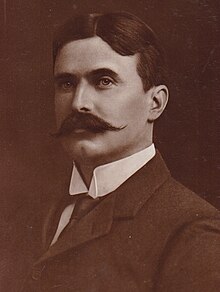The Earl Peel | |
|---|---|
 Peel in 1910 | |
| Lord Keeper of the Privy Seal | |
| In office 3 September 1931 – 5 November 1931 | |
| Monarch | George V |
| Prime Minister | Ramsay MacDonald |
| Preceded by | Tom Johnston |
| Succeeded by | The Viscount Snowden |
| Secretary of State for India | |
| In office 18 October 1928 – 4 June 1929 | |
| Monarch | George V |
| Prime Minister | Stanley Baldwin |
| Preceded by | The Earl of Birkenhead |
| Succeeded by | William Wedgwood Benn |
| In office 19 March 1922 – 22 January 1924 | |
| Monarch | George V |
| Prime Minister | David Lloyd George Bonar Law Stanley Baldwin |
| Preceded by | Edwin Montagu |
| Succeeded by | The Lord Olivier |
| First Commissioner of Works | |
| In office 10 November 1924 – 18 October 1928 | |
| Monarch | George V |
| Prime Minister | Stanley Baldwin |
| Preceded by | Fred Jowett |
| Succeeded by | The Marquess of Londonderry |
| Minister of Transport | |
| In office 7 November 1921 – 12 April 1922 | |
| Monarch | George V |
| Prime Minister | David Lloyd George |
| Preceded by | Eric Geddes |
| Succeeded by | The Earl of Crawford |
| Chancellor of the Duchy of Lancaster | |
| In office 1 April 1921 – 19 March 1922 | |
| Monarch | George V |
| Prime Minister | David Lloyd George |
| Preceded by | The Earl of Crawford |
| Succeeded by | William Sutherland |
| Parliamentary Under-Secretary of State for War | |
| In office 10 January 1919 – 1 April 1921 | |
| Monarch | George V |
| Prime Minister | David Lloyd George |
| Preceded by | Ian Macpherson |
| Succeeded by | Robert Sanders |
| Parliamentary Secretary to the Ministry of National Service | |
| In office 15 April 1918 – 10 January 1919 | |
| Monarch | George V |
| Prime Minister | David Lloyd George |
| Preceded by | Cecil Beck |
| Succeeded by | Position abolished |
| Member of the House of Lords Lord Temporal | |
| In office 24 October 1912 – 28 September 1937 as a hereditary peer | |
| Preceded by | The 1st Viscount Peel |
| Succeeded by | The 2nd Earl Peel |
| Member of Parliament for Taunton | |
| In office 23 February 1909 – 24 October 1912 | |
| Preceded by | Sir Edward Boyle |
| Succeeded by | Gilbert Wills |
| Member of Parliament for Manchester South | |
| In office 29 May 1900 – 8 February 1906 | |
| Preceded by | John Campbell |
| Succeeded by | Arthur Haworth |
| Personal details | |
| Born | 7 January 1867 London |
| Died | 28 September 1937 (aged 70) East Meon, near Petersfield, Hampshire |
| Nationality | British |
| Political party | Liberal Unionist Conservative |
| Spouse | Hon. Eleanor Williamson |
| Children |
|
| Parent |
|
| Alma mater | Balliol College, Oxford |
William Robert Wellesley Peel, 1st Earl Peel, GCSI, GBE, TD, PC, DL (7 January 1867 – 28 September 1937), 2nd Viscount Peel from 1912 to 1929, was a British politician who was a local councillor, a Member of Parliament and a member of the House of Lords. After an early career as a barrister and a journalist, he entered first local and then national politics. He rose to hold a number of ministerial positions but is probably best remembered for chairing the Peel Commission in 1936–1937, which recommended for the first time the partition of the British Mandate of Palestine into separate Jewish and Arab states.[1]
The grandson of a Conservative prime minister, he was unusual even for his period in the number of political parties for which he was elected. He began as a member of the Moderate Party on the London County Council and later became the leader of the renamed Municipal Reform Party; he was then elected as an MP for the Liberal Unionists and then for the Conservative Party before he inherited his seat in the Lords in 1912. He also served as a minister in governments led by Liberal, Conservative and Labour prime ministers.
His ministerial career began as Under-Secretary of State for War in 1919, and he entered the cabinet in 1922 as Secretary of State for India and held a number of other ministerial positions.[1]